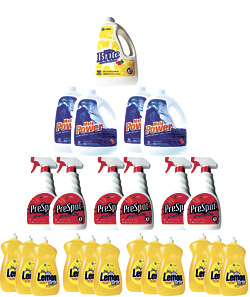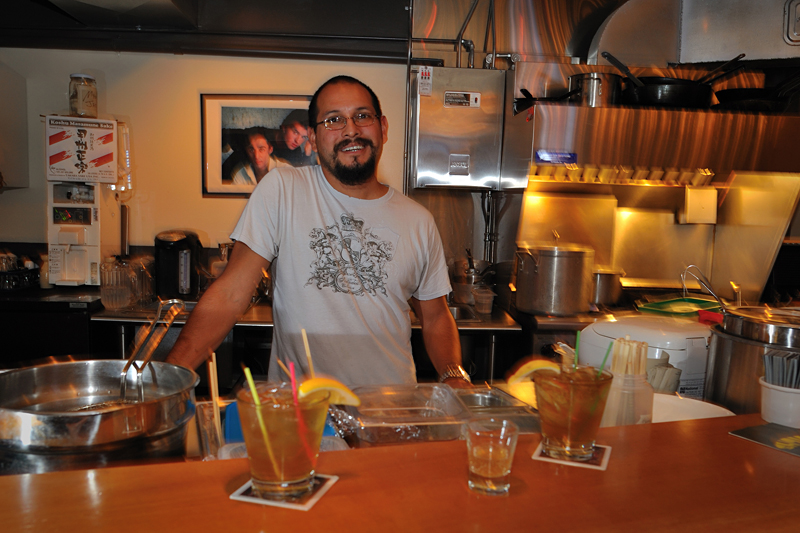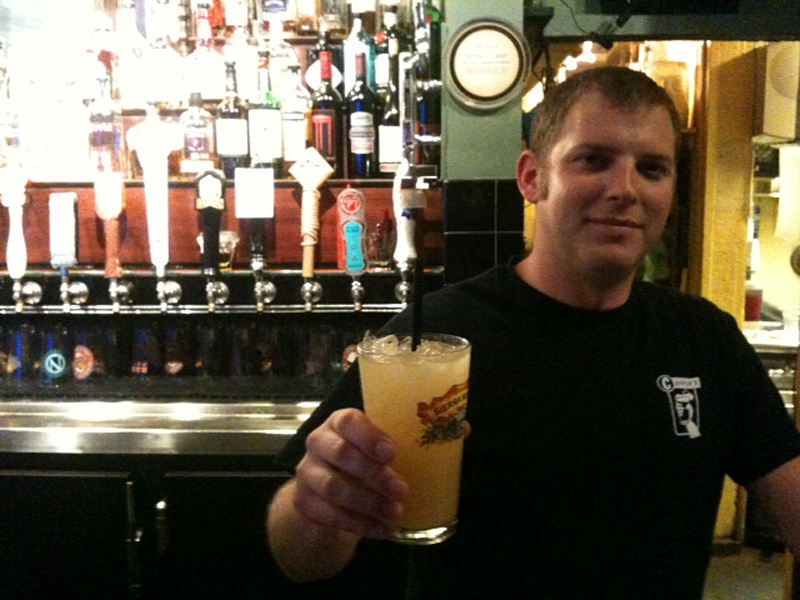At the end of October, a post appeared on Craigslist asking for people interested in preserving the environment and maintaining a healthy, chemical-free lifestyle. And really, who in Seattle isn’t?
But the ad wasn’t for a product, service or cohousing community; it was offering the chance to, yes, build your own home-based business.
Multilevel marketing—the pyramidlike (but only like!) business model made famous by Amway and Mary Kay—has, inevitably, gone green. Melaleuca, a household-products company based in Idaho (named for the plant from which tea tree oil is derived) is actively recruiting in the Puget Sound area.
Brenda Malpedo of Tacoma, a Melaleuca “marketing executive,” placed the Craigslist ad in order to recruit other salespeople to join. Malpedo says she was looking for natural products to use and a way to make money from home when a friend introduced her to the company. “It was kind of like an ‘a-ha’ moment,” she says.
According to documents filed with the Federal Trade Commission, signing up as a Melaleuca marketing executive costs $29 and doesn’t come with a large product-buy up front. But to maintain that status, an executive must also enroll as a Preferred Customer and purchase a minimum of about $45 of Melaleuca products every month.
It shouldn’t take long to hit that minimum. A 96-ounce bottle of Melaleuca laundry detergent sells for $20. Trader Joe’s sells a 128-ounce bottle advertised as natural for $8.99. Melaleuca’s exact product formulas are proprietary, according to product labels, but the detergent ingredient list includes surfactants, enzymes, melaleuca oil, colorant, and fragrance.
Cathy Good of Seattle says she started worrying about the cleaners in her home a little more than three years ago when she had a 1-year-old daughter toddling around the house. A friend told her about dangerous chemicals found in household cleaners. “He just opened my eyes, you know.” And, he told her, it was a business opportunity.
That friend, Val Mohney, a 38-year-old Melaleuca marketer living in Edmonds, says he equates purchasing natural products with taking a political stand for the environment. “In my opinion we vote with our dollars, and we’re either voting for the things that support the environment or the things that do not support the environment,” says Mohney, a former massage therapist who likes Hillary Clinton in 2008.
That philosophy does not necessarily go all the way up the chain, however.
Multilevel marketing companies can operate legally as long as a product shows up in someone’s home at some point down the line. But as with their illegal counterparts, pyramid schemes, the person at the apex takes in the most. The man at the top of the Melaleuca tree is Frank VanderSloot, patriarch of a large Idaho Falls, Idaho, Mormon family that gives strong support to local and national Republican candidates.
VanderSloot and his family, which includes 14 children, have given more than $186,000 to Republican candidates and committees, as well as conservative groups, since 1994, according to databases maintained by the Center for Responsive Politics and the Idaho secretary of state’s office. The Idaho Falls Chuckars, a minor league baseball team, play in a ballpark named for his company.
A Mitt Romney backer, VanderSloot is also a believer in Sen. Larry Craig, with whom he was inducted into the Idaho Hall of Fame by an Idaho travel and trade magazine company this year. Craig has received $8,100 from the family since 1996. “I think this whole thing in the bathroom in Minneapolis is a bogus deal.” VanderSloot says by phone. He adds that he knows Craig and doesn’t expect to see him run again, but if he does, “I would be supportive of him.”
VanderSloot, who has been Melaleuca’s president since creating the company in 1985, says recent interest in natural lifestyles has given his business a shot in the arm. A company report says sales hit $783 million in 2006, almost double where they were five years before. “We gained an understanding of the demand for naturally oriented products,” he says. “We were there before being natural was in vogue.”
The specifics of Melaleuca’s financial structure are spelled out clearly in a letter VanderSloot filed with the Federal Trade Commission in July 2006. He wrote in opposition to proposed rules that would require direct-marketing companies like Melaleuca to provide disclosure documents about the nature of the business to prospective marketers at least seven days before they sign any contract, and to state whether or not there have been any legal actions against the company in the past 10 years. Melaleuca opposes the proposed changes, which the FTC hasn’t yet decided on.
Melaleuca, according to VanderSloot’s letter, markets personal care, nutritional, and home cleaning products with catalogs, and uses a network of “marketing executives” to expand its customer base. According to the FTC documents, almost 250,000 people became Melaleuca marketing executives between mid-2005 and mid-2006. As of May 2006, only 169,000 of the company’s marketers were “active,” meaning they had referred others into the system.
VanderSloot says his business is about selling the product. The referrals, he says, are only a small focus. About 60 percent of their customers just purchase the product; they haven’t signed up to start their own home-based business.
But Good says the real incentives are in recruiting sellers, not bringing customers to the Melaleuca catalogs or Web site. And the more people they sign up as marketers, the higher the income potential.
The average annual income for most marketing executives, according to a report issued by Melaleuca for 2006, is $90. About 72 percent of the executives are at this level. As they recruit, the title changes and the average earnings go up.
Good says she hasn’t really made any money on the program since signing up more than three years ago. She has had some sales referrals, but hasn’t recruited anyone else to sign up as a marketer. But she continues purchasing and using the products, and says she plans on giving recruiting another shot now that her daughter has entered kindergarten.
Mohney started with Melaleuca in Edmonds about five years ago. At the time, he says, potential customers just didn’t seem to get the idea that the household products they use might be harmful to their health or the environment. Now he has about 800 customers in the Seattle area, a mix of people who just purchase the products and others who have started referring their own customers. He adds that interest is surging. “People are hungry for the green thing,” he says.







